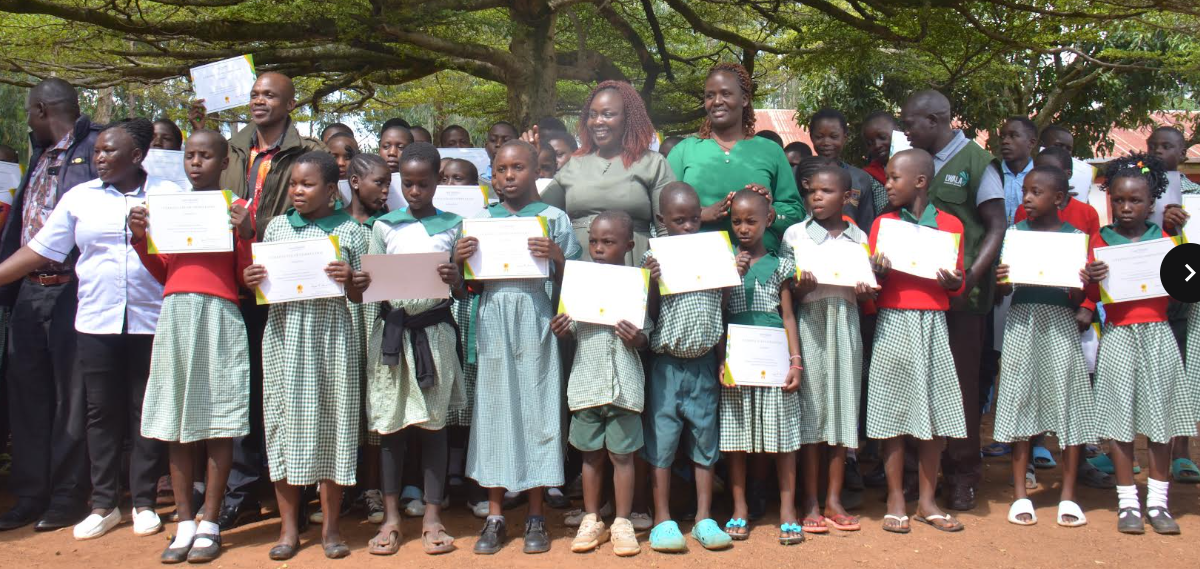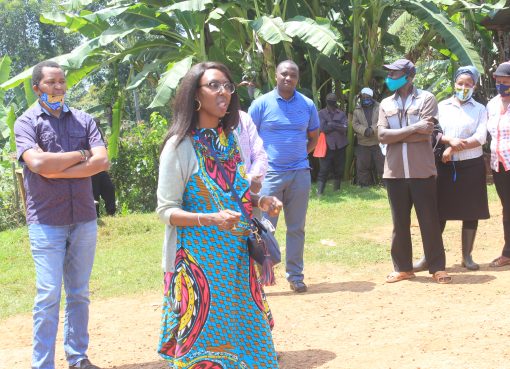Cases of FGM) in Kuria Sub County have continued to rise in the recent weeks, despite the existing government ban on the illegal practice.
According to the Kenya government, the vice was to be completely stopped by end of 2022, but unfortunately it has continued to persist in Kuria and other regions that practice the rite.
This rampant practice continues with impunity, despite an unwavering push by Civil Society Organisations (CSOs) and the government to eliminate the same.
In the Kuria region, the vice has become more rampant and according to Migori County Commissioner, Kisilu Mutua, the high number of girls taken through the rite this year may have been triggered by the four clans (Abagumbe, Abairege, Abanyabasi, Abakira) conducting the celebration within the same time.
In the previous years, each clan celebrated this Kuria popular rite on its own and in turns.
“The surging cases day by day can be attributed to the many girls being handled from all these four clans in one season,” said the administrator.
Despite the dilemma dogging the war against FGM, the CSOs in Migori are not relenting in their efforts to fight the vice. One such Organisation is the ‘4D Last Mile NGO,’ which has been training the Kuria girls in the past four years on the effects of undergoing FGM.
This year alone, the NGO has trained 126 school-going children in Mabera Sub County to enable them to become champions, mentors and advocates of anti-FGM messages.
According to the Director 4D Last Mile, Esther Maswi, the one-year training mentorship programme will equip the Kurian girls with the necessary skills to know their fundamental rights as enshrined in the 2010 constitution; the right for children’s protection.
The 2010 Constitution of Kenya (Article 53) recognises the right of all children to be protected from abuse, neglect, harmful cultural practices, all forms of violence, inhumane treatment and punishment, and hazardous or exploitative labour.
In an interview with KNA, Maswi disclosed that the one-year training will help to educate the Kuria girl child on the importance of saying no to FGM.
“We have also been involved in the campaign to educate the locals on the importance of respecting the rights of children and the girl child education empowerment,” she said.
The mentorship programme trained school-going girls aged 9-12 years, who are majorly targeted and subjected to the cut in Kuria; to give hope to the younger generation on the importance of prioritizing their education.
Maswi said that her Organisation has invested in training and empowering the Kuria girls on the effects of the retrogressive vice that brings effects like early marriages, teenage pregnancy and Gender Based Violence among others.
According to Damaris Sayo, a Field Officer for the 4D programme, they will soon come up with tailored content that can be incorporated into schools to help the government in the fight against the vice.
“As an organisation, we will engage with educational stakeholders to incorporate Anti-FGM content in the syllabus to fight the vice with education,” said sayo.
Over the last four years, 4D NGO has been engaging Kuria girls in training and mentorship programmes to address the FGM menace that is still rampant in the region.
Sayo says that the four-year period has seen girls become mentors and champions of Anti-FGM in the region giving hopes to the younger generation on the importance of education.
The official emphasised that the organisation will continue to train adolescent girls to give them a voice to say no to the retrogressive vice in order to achieve an FGM-free society.
Mabera Sub County Deputy County Commissioner (DCC), Olare Mbiso, emphasised that FGM remains a criminal offence.
The local administration has been holding barazas to tackle the vice in Kuria, but in vain.
Added Olare: ” A multi-agency task force, including Tanzanian officials, has been formed to tackle and address the cross-border FGM, which has continued to be a big challenge to the team.”
However, the DCC said that the government has allowed the country dwellers to practice their positive and educational cultures and traditions and those propagating otherwise were not sincere.
“We will not allow retrogressive cultures like FGM to continue, and the government is clear on that. What we want to see is positive cultures that showcase our unity, strength and togetherness”, said Mbiso.
But Andrew Mwiti, the Kuria West Sub County Deputy County Commissioner says the enactment of the prohibition of the FGM has greatly contributed to the reduction of the vice in the Kuria region.
“FGM Act 32 of 2011 played a crucial role in reducing the tempo of the vice as well as prosecuting those that violate this act,” explained Mwiti.
The act is the principal legislation governing FGM in Kenya that criminalizes all forms of FGM, regardless of the age or status of a girl or woman.
He says that various Civil Society Organisation (CSOs) and the Anti-FGM board continue to play a crucial part in addressing the FGM menace in the county.
Mwiti said that so far they have been able to secure 347 girls across the Kuria region and placed them in temporary recuse centres with the help of various NGO’s operating within the county.
Meanwhile, Sabina Ghati, a parent from the Masaba area whose child benefited from the programme, affirms that the mentorship programme will equip her daughter with the necessary skills on Anti-FGM messages to empower her colleagues.
By Geoffrey Makokha and George Agimba




